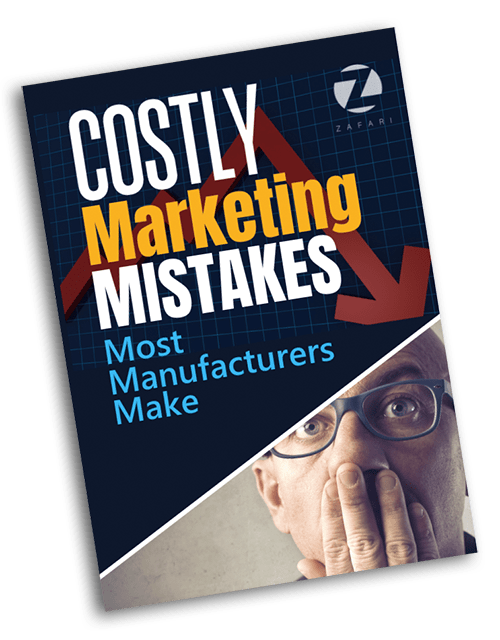One of the common yet costly mistakes that many industrial manufacturers make is to ask for the sale too soon.
Sure. Today’s customers have shorter attention spans as well as limited time to understand your offer or products, especially with your website, social media outlets, or digital platform. On top of that, the manufacturing landscape is quite competitive. In such scenarios, most marketers may tend to rush into sales pitches as soon as possible—even without establishing trust and rapport with the client. But introducing the sales point too soon may sound pushy. A customer may assume that you are getting desperate to seal the deal. Knowing when to ask for the sale to your industrial customers is both an art and a science. Here we will walk through such reasons why you should avoid asking for the sale too soon (and when is the right time to do that).
Building Trust Takes Time:
Industrial buyers often operate in complex environments where decisions can have significant impacts on their operations. As a result, they are likely to look for trust and reliability in their suppliers or vendors. If you ask for the sale too soon, it may sound overly aggressive. Even worse, it may hurt your efforts to build trust with prospective clients. Instead of rushing the sale, industrial manufacturers should focus on establishing credibility and demonstrating their expertise. For example, you can interact with them through educational content. You can provide valuable insights and offer solutions tailored to their unique problems. As well. The point is here to establish yourself as a reliable advisor rather than just a salesperson. This way, you can lay the foundation for lasting relationships built on mutual understanding and respect.
Every Buyer’s Journey is Complicated and Unique:
In the industrial sector, the buying process is often complex and multifaceted. A potential buyer navigates through various states. It involves identifying a problem assessing different solutions and finally making a purchase decision. At this point, asking for the sale too soon may overlook the importance of understanding where the buyers are in their journey. You may miss out on information or support they require at each stage. Instead, opt for a consultative approach. Listen to the buyers’ problems and offer solutions accordingly. By aligning their sales efforts with the buyer’s journey, manufacturers can provide relevant information, address key pain points, and ultimately position their products or services as the best solution.
Fostering Relationships for Long-Term Success:
It is quite understated to say that relationships matter in the industrial sector. Having a strong network with your client leads to initial sales. Best thing? It promotes loyalty and repeat business over time. If you push for the sale too soon, you may end up affecting these relationships by making your customers feel undervalued or pressured. Always focus on nurturing relationships with ongoing communication, timely customer service, and continued support beyond the initial sale. Showing a genuine interest in the success of your clients and consistently delivering value can turn your one-time buyers into loyal advocates recommending your products and services to others.
When to Ask for Sale to Your Industrial Customers
Identify Their Stage of the Sales Funnel:
Industrial customers don’t make purchasing decisions lightly. They go through a meticulously planned buyer’s journey, which typically includes stages like awareness, consideration, and decision-making. Your task as a sales professional is to integrate your approach with where your client is in this journey. For example, if a potential customer is still in the awareness stage, bombarding them with sales pitches may not be a good idea. Instead, provide valuable information and build rapport with them. As they move to the next stage and are ready to make a purchase, that’s the time to convince them to buy from you. At Zafari we use the StoryBrand messaging framework to map out compelling messaging for every stage of the customer’s. It helps us create powerful, effective marketing campaigns for our manufacturing clients. See how it can help you find the right solutions according to your customer’s journey.
Listening for Buying Signals:
Another thing you can do to find the right time to pitch your sales to the customer is to listen to them. Maybe you get some subtle cues or buying signals. Catching such signals can help determine if they are ready to move forward with a purchase. Buying signals can occur in many forms, from specific questions about product specifications to inquiries about pricing or delivery options. When you detect these signals, you can decide if it’s time to start discussions about closing the sale.
Providing Value at Every Step:
This can be done through product demonstrations, case studies, or testimonials from satisfied customers. By showcasing the tangible benefits and ROI of your offering, you make a compelling case for why the customer should choose you.
Conclusion
By understanding your buyer’s journey, listening for buying signals, building trust, and providing value every step of the way, you can increase your chances of closing deals successfully. So, next time you’re tempted to ask for the sale prematurely, remember the importance of patience, understanding, and relationship-building in achieving sales success in the industrial manufacturing sector. If you are still not sure and looking for expert advice, we are here to help you with our proven and tailored solutions. Let us know how we can help you convince your clients with a compelling sales pitch at the right time and right place.






